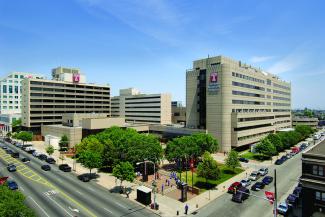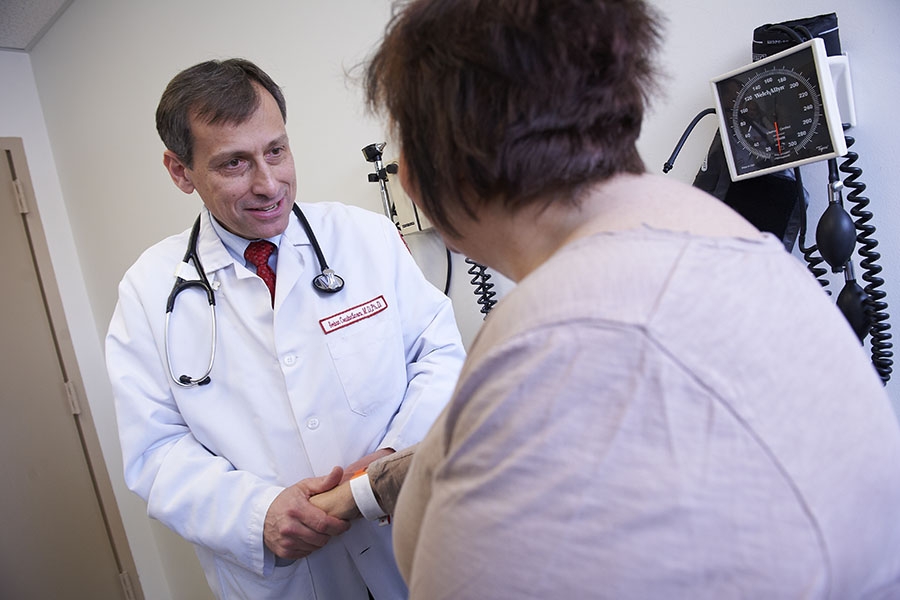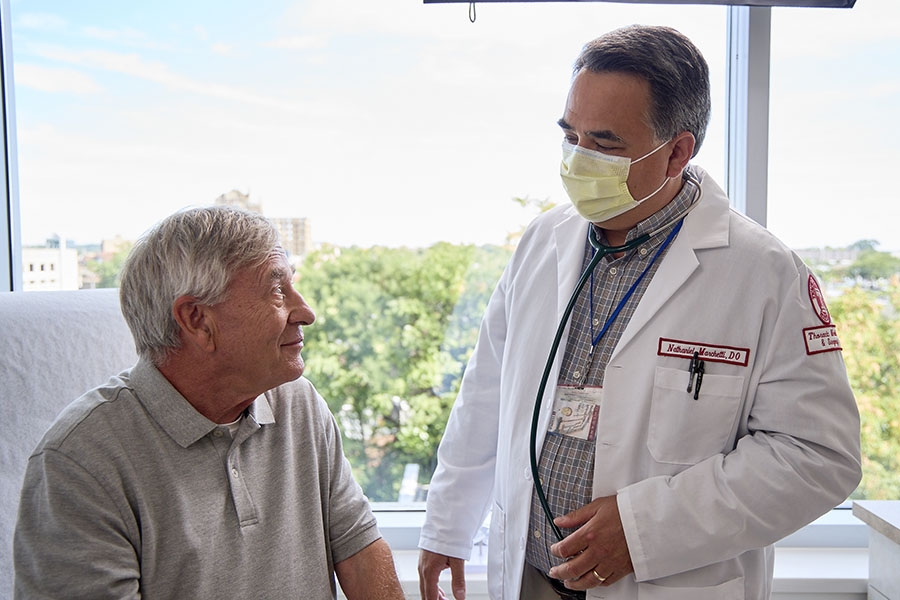Our goal at the Temple Kidney Transplant Program is to offer the widest range of treatment options to patients with end-stage kidney disease, severe diabetes and the complications linked to both. Our years of experience gives us the opportunity to take on even the most difficult cases that are passed on by other centers. Together with you and your care team, we’re ready to take on any challenge.
We know the idea of transplant can be scary. At Temple, our goal is to provide you support throughout your transplant journey. Our compassionate, dedicated specialists will be by your side every step of the way.
Our History of Success
Temple’s highly respected Kidney Transplant Program has successfully treated hundreds of patients, giving them the opportunity to lead productive and fulfilling lives. Led by Antonio di Carlo, MD, Chief of Abdominal Organ Transplant Surgery, our dedicated team has consistently achieved 1-year success rates that exceed the national rate.* With more than two decades of experience and a passionate team committed to every patient, Temple’s Kidney Transplant Program is an outstanding choice for even the most challenging cases of end-stage kidney disease.
We guide you through the process from start to finish — from finding an appropriate donor to helping you recover and stay healthy after surgery.
Why a Kidney Transplant Might Be Right for You
Kidney failure can be physically and emotionally challenging. One treatment option, dialysis, is life-saving, but it can also be challenging to adjust to a new schedule. A kidney transplant is another treatment option and may be one that’s right for you. Receiving a new kidney can provide permanent relief and help you get back to a fuller, freer life.
Deciding whether to have dialysis or kidney transplant is an important choice. You and your doctor should discuss the best approach based on many factors. While both take over the work of your kidneys, there are differences to consider.
Kidney transplant
During a kidney transplant, your damaged kidneys are left in place and the healthy donor kidney is placed and attached to your bladder. While it’s true that kidney transplant is major surgery, the success rates are high, according to the Scientific Registry of Transplant Recipients (SRTR).
With kidney transplant, you’ll be required to take medicines that suppress your immune system for the rest of your life. This is to help your body accept your new organ. You can lead a more normal life with a kidney transplant than on dialysis. You will follow-up with your doctor on a regular basis but will not be tied to a dialysis machine or need to visit a dialysis center every day.
Learn more about what to expect with kidney transplant surgery >
Dialysis
If you choose dialysis, you will have scheduled treatments to remove waste and excess fluid from your body. You may come in to have your dialysis treatments, or you may have the option of home dialysis. Keep in mind that some patients find it difficult to come to the dialysis center on a regular basis or feel that maintenance at home is restrictive.
You will also take medications and follow dietary guidelines to help your dialysis work effectively. While dialysis is a life-saving treatment, it can also significantly limit your lifestyle.
Some people are on dialysis while they wait for a match.
Living Donors Often Lead to Better Outcomes
Research shows that organs from living donors generally work better, last longer and are available sooner. Temple is committed to connecting patients with living donors whenever possible.
We screen potential donors through a comprehensive evaluation. We also offer a Kidney Exchange Program for donors and recipients who are having trouble finding a match.
For living kidney donors, we employ the latest minimally invasive techniques including single incision laparoscopic surgery. This approach can reduce side effects and recovery time.
Read more about living kidney donors >
An Experienced Team Approach
Successful kidney transplantation requires commitment from a team of experts who focus their passion, knowledge and experience on the program. Temple’s Kidney Transplant Program was built on a foundation of collaborative research, clinical skill and technical prowess that results in the best outcomes for our patients. We stay at the forefront of kidney transplant research and train in the latest techniques so that our patients have access to the most promising treatments available.
Our team is:
- Multidisciplinary, working closely together to determine the best course of action based on your individual case. We explore options that may reduce your wait time.
- Trained in all aspects of chronic kidney disease. Our skilled transplant nephrologists and surgeons can treat even the most complex cases. This includes patients with another chronic disease.
- Experienced in performing multi-organ transplants. If you need another organ transplant, we can take care of this in one procedure. It will save you time and reduce any anxiety that you may experience with having a transplant. We can combine a kidney transplant with that of a heart, liver, lung or pancreas transplant.
- Recognized as among the best. Physicians in the Temple Kidney Transplant Program are often named among Philadelphia magazine’s “Top Doctors.”
George’s Living Kidney Transplant Story
When George was told he needed a kidney transplant, he felt like all hope was lost. But even with a weak heart and end-stage kidney disease, Dr. Antonio Di Carlo felt he was a candidate for transplant. Thanks to the expertise of Temple and his wife’s loving gift of a living kidney, George has his life back.




